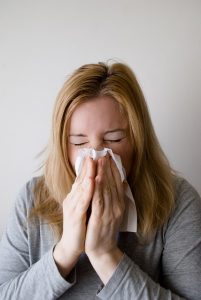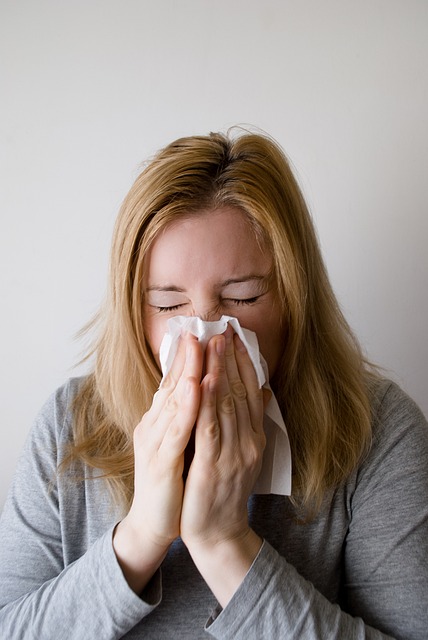Being sick with a cold can be a frustrating experience. It can leave you feeling tired, achy, and congested for days on end. However, there are ways to prevent and treat a cold that can help you feel better faster.
In this post, we will discuss the common cold, its symptoms, preventative measures, home remedies, over-the-counter medications, when to seek medical attention, and tips for avoiding future colds.
Understanding the Common Cold
 A cold is a viral infection that affects the upper respiratory system. It is caused by one of many different viruses and is highly contagious. The virus is spread through contact with an infected person’s respiratory secretions, such as through coughing or sneezing. Once the virus enters your body, it begins to replicate in your cells and causes inflammation in your nose and throat.
A cold is a viral infection that affects the upper respiratory system. It is caused by one of many different viruses and is highly contagious. The virus is spread through contact with an infected person’s respiratory secretions, such as through coughing or sneezing. Once the virus enters your body, it begins to replicate in your cells and causes inflammation in your nose and throat.
Identifying Symptoms of a Cold
The symptoms of a cold can vary from person to person but typically include a runny or stuffy nose, sore throat, coughing, sneezing, fatigue, and body aches. It is important to differentiate a cold from other illnesses such as the flu or allergies. The flu typically comes on suddenly with more severe symptoms such as fever and body chills while allergies usually involve itching eyes and nose.
Taking Preventative Measures
There are several ways to prevent catching a cold including washing your hands frequently with soap and water for at least 20 seconds each time. Avoid touching your face or mouth as much as possible and avoid close contact with sick individuals. Additionally, getting enough sleep, eating a healthy diet rich in vitamins and minerals, staying hydrated, and exercising regularly can all help boost your immune system.
Home Remedies for Treating a Cold
There are several natural remedies that can help alleviate the symptoms of a cold including drinking plenty of fluids such as water or tea with honey and lemon, using a humidifier to moisten the air, and taking a hot shower or bath to help clear congestion. Additionally, consuming foods high in vitamin C such as citrus fruits or taking supplements can help boost your immune system.
Over-the-Counter Medications for Treating a Cold
There are several over-the-counter medications that can help alleviate the symptoms of a cold including decongestants, pain relievers, and cough suppressants. Decongestants work by narrowing blood vessels in the nasal passages to reduce swelling and congestion while pain relievers such as acetaminophen or ibuprofen can help reduce fever and body aches. Cough suppressants work by blocking the cough reflex in the brain.
When to Seek Medical Attention
While most colds will resolve on their own within a week or two, there are times when it is necessary to see a doctor. If you have a high fever, severe headache, chest pain, difficulty breathing, or if your symptoms last longer than two weeks, it is important to seek medical attention. Additionally, if you have a weakened immune system due to an underlying condition such as HIV or cancer, it is important to seek medical attention if you develop a cold.
Tips for Avoiding Future Colds
To avoid future colds, it is important to maintain good health habits such as getting enough sleep, eating a healthy diet rich in vitamins and minerals, staying hydrated, and exercising regularly. Additionally, avoiding close contact with sick individuals and washing your hands frequently can help prevent the spread of viruses.
In conclusion, while getting sick with a cold can be frustrating, there are ways to prevent and treat it that can help you feel better faster.
By taking preventative measures such as washing your hands frequently and avoiding close contact with sick individuals, consuming natural remedies such as honey and lemon tea or using over-the-counter medications such as decongestants or pain relievers, and maintaining good health habits, you can avoid getting sick with a cold in the future.








